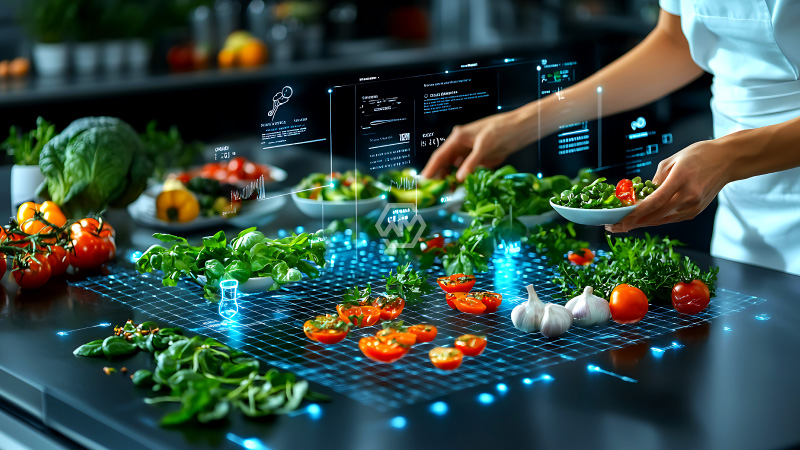- AI and ML: Optimizes food inventory management, reducing overstocking and waste.
- IoT: Smart sensors monitor storage conditions, preventing spoilage.
- Food Apps: Connect surplus food to those in need, reducing waste and helping communities.
AI and machine learning (ML) are revolutionizing the way businesses manage food inventory, enabling precise demand forecasting to minimize both surplus and shortage.
Moreover, tech-driven platforms are addressing food insecurity while reducing waste by connecting businesses with surplus food to charitable organizations.
Tech Innovations Paving the Way for a Waste-Free Food Industry
Artificial intelligence and machine learning are transforming inventory management across the food industry, allowing businesses to forecast demand with greater precision. By leveraging historical data and real-time analytics, companies can optimize their stock, reducing both over-ordering and under-ordering. This minimizes food waste at every step, from restaurants to retailers.
The Internet of Things (IoT) is also making strides in food preservation. Smart sensors monitor environmental factors like temperature and humidity, ensuring optimal storage conditions throughout the supply chain. This technology helps prevent spoilage during transportation and storage, ultimately extending the shelf life of perishable foods.
In addition to preventing food waste, tech-driven platforms are facilitating food recovery and redistribution. These platforms streamline the process of donating surplus food, connecting businesses with charities and communities that need it most. This not only reduces waste but also helps address food insecurity at a larger scale.
Meanwhile, innovative farming practices like precision agriculture and vertical farming are tackling food waste from a production perspective. Precision agriculture allows for efficient use of resources, while vertical farming maximizes space utilization. These advancements contribute to more sustainable food production and less overall waste.
As technology continues to advance, the fight against food waste gains momentum, offering promising solutions that enhance efficiency, reduce environmental impact, and address food insecurity. By embracing these innovations, we can build a more sustainable food system for future generations.
“The future of food is not just about what we eat but how we produce and manage it.”



